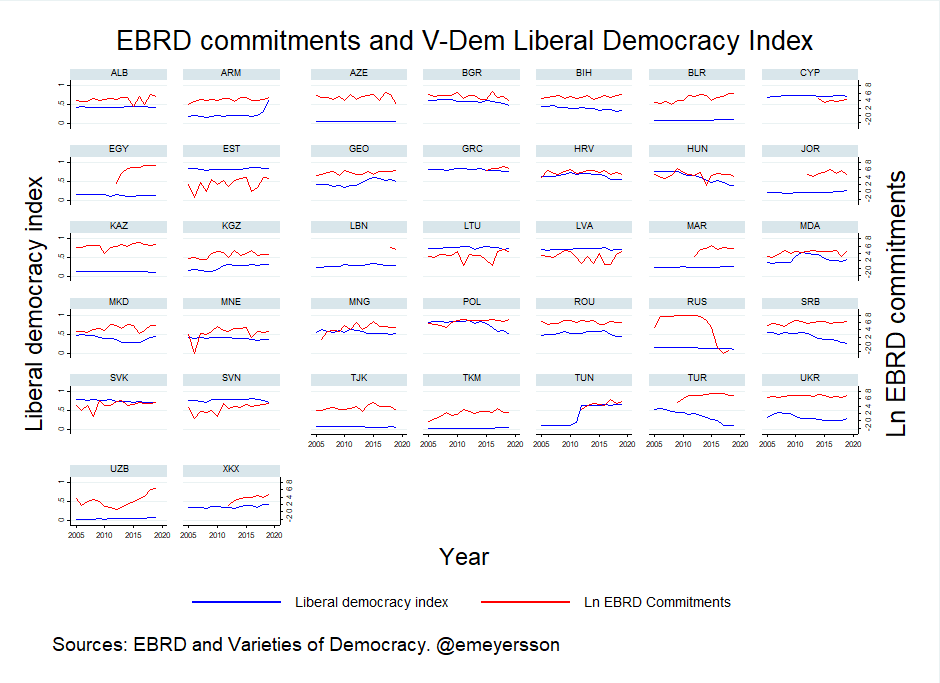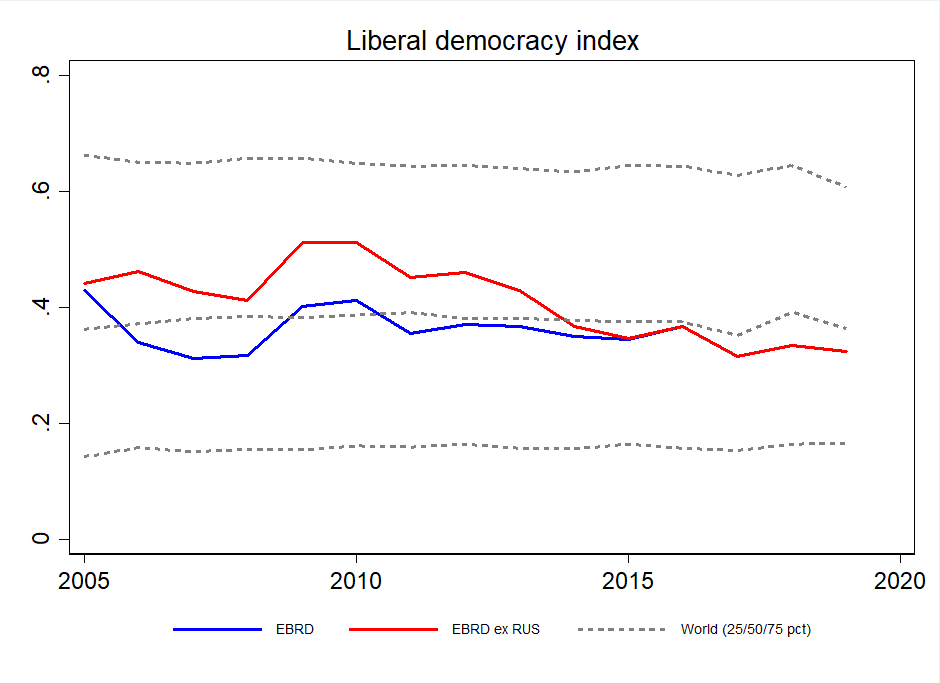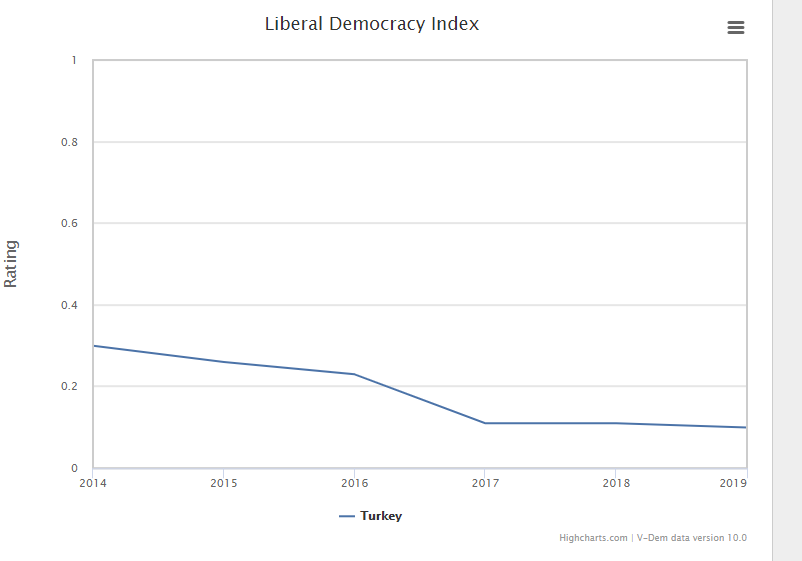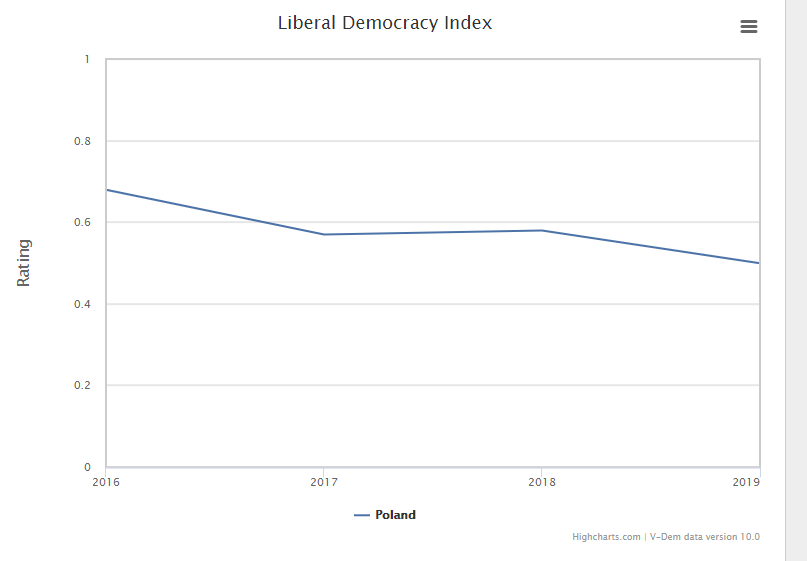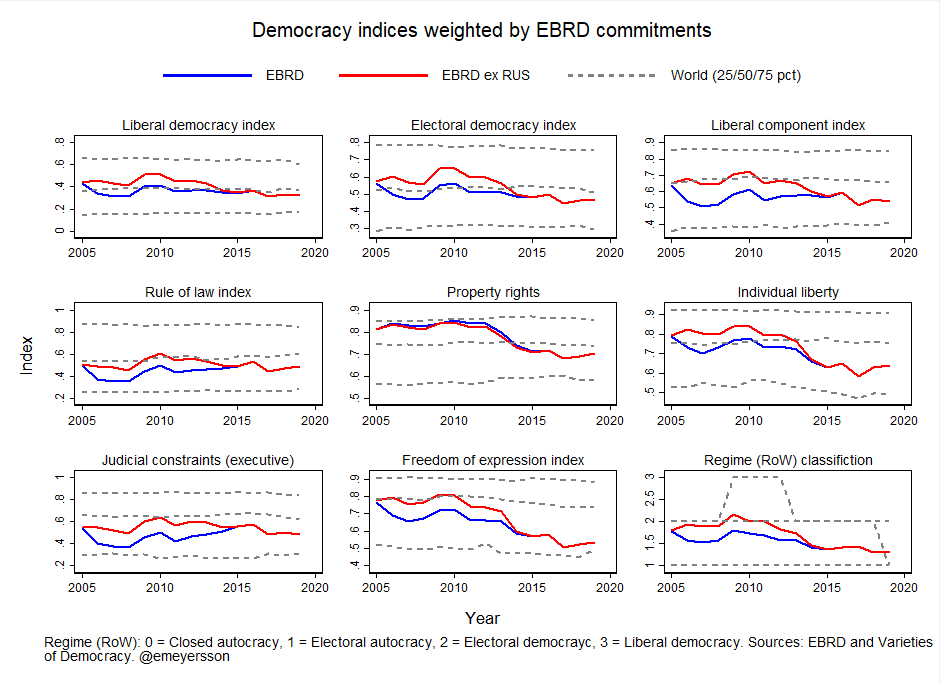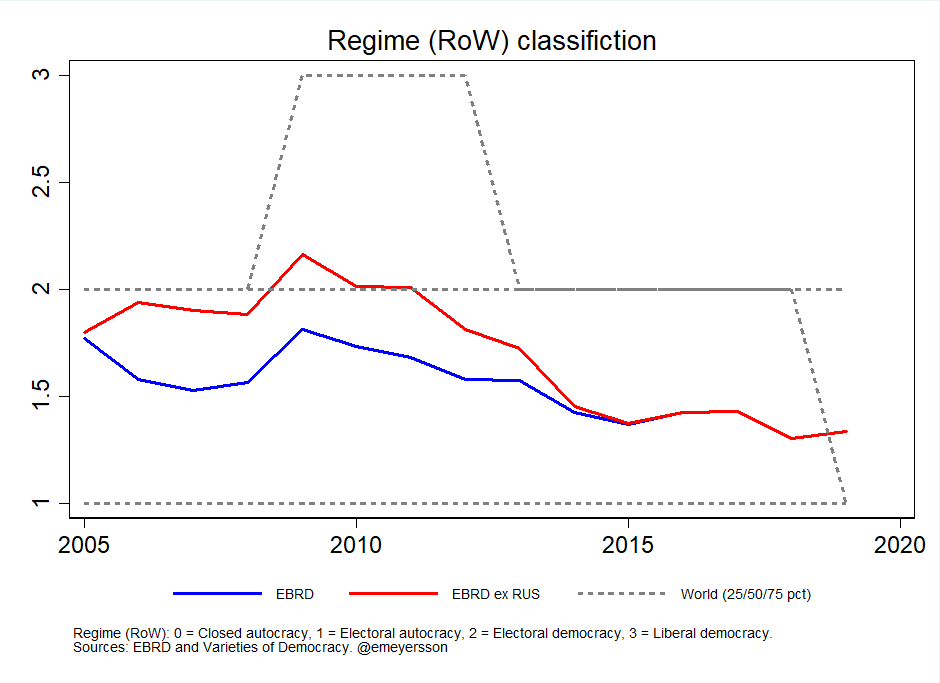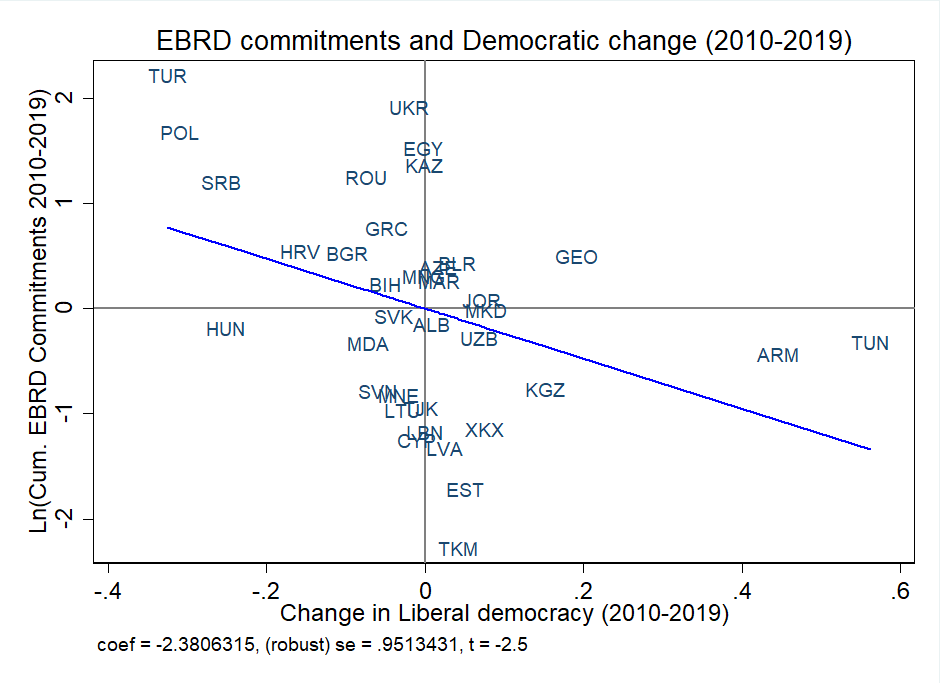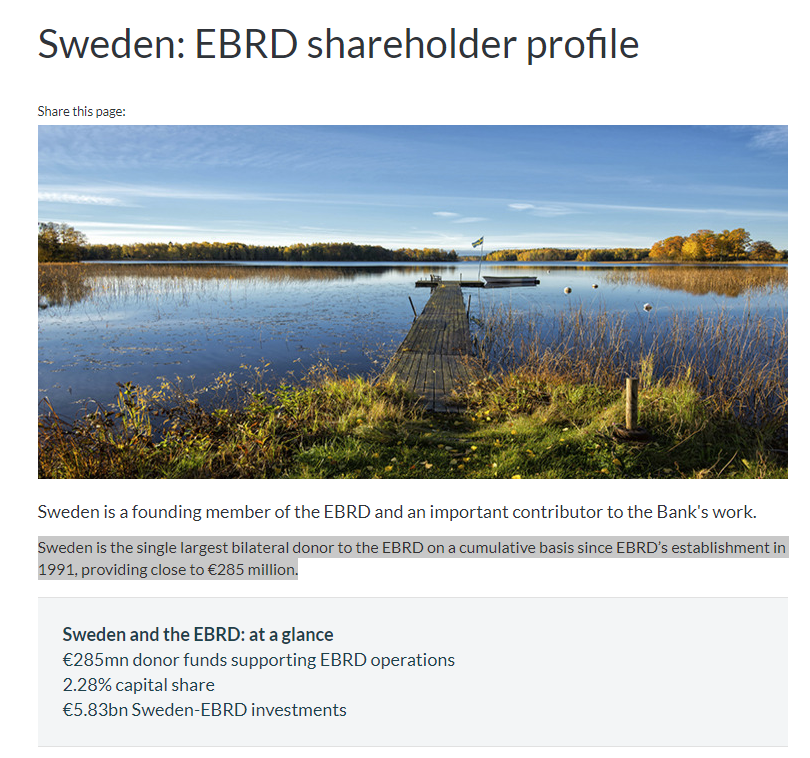This weekend I went through @EBRD Annual Reviews back to 2005 and matched with @vdeminstitute's democracy indices to see if its activities followed its stated commitment to multiparty democracy. Here's what I found. Hint: it's not satisfactory (Thread) https://www.ebrd.com/our-values/multiparty-democracy-and-pluralism.html
I constructed a weighted Liberal democracy index, where the weights are proportional to @EBRD's annual commitments. I constructed one with and one without Russia, since activities stopped after 2014 for sanctions reasons, not because of EBRD preferences...
In the graph for all countries in the 2019 EBRD universe, you can see how significant amounts of commitments have gone to authoritarian countries, like Egypt, Turkey, Belarus, and Uzbekistan. You also see the plunge in Russia around 2015 when the sanctions come into force.
The weighted index, w RUS excl(red) was flat until 2010 and since then it has fallen 0.19 points. This has resulted in the EBRD universe becoming less democratic than the world median. Including RUS (blue) would flatter the index as commitments here disappear after 2015.
How much is a 0.19 fall in liberal democracy? Well, it's large, and comparable to Turkey's index decline between 2014-2019, which includes the purges after the 2013 corruption cases and the failed coup attempt of 2016. It's also larger than Poland's index decline since 2016.
In other V-Dem indices you can see this even more clearly. Moreover, a particular worrisome outcome is the @EBRD universe's fall in property rights, individual liberty, judicial independence, and freedom of expression.
V-Dem also has a regime classification variable, and this epitomizes how bad things have gotten. Back in 2011, the @EBRD universe was still an "electoral democracy" but today its closer to an "electoral autocracy".
Plot the cumulative EBRD commitments between 2010-2019 and the change in liberal democracy 2010-2019 you can see what's going on. Money flows to already authoritarian as well as those that are becoming more so. The (simple) correlation is strong and statistically significant.
On the magnitude of the correlation. A 1 standard deviation deterioration in the index (0.17) correlates with a ~50% increase in the cumulative euros in @EBRD commitments over that period. What message does this send to governments considering committing to multiparty democracy?
@EBRD's own methods for determining how it follows Article 1 is rather hazy, but it seems you would have to be excessively generous to conclude that the bank's actions is consistent with its statues. Perhaps it's time to change or remove Article 1 or start taking it seriously?
A friendly ping to @OdileRenaud as well as those of the EBRD Board of Directors on Twitter @raisanen_ilkka @a_panarella @CasparVeldkamp @EuJoseleandro @jenslundsgaard @MartKivine https://www.ebrd.com/directors-of-the-ebrd.html
As a Swedish citizen, I would also wonder how my country's representative on the Board of Governors, @AnderssonMagda @FinansdepSv, as well as on the Board of Directors, Eva Cassel, consider this track record consistent with the Swedish gov's commitment to multiparty democracy...

 Read on Twitter
Read on Twitter
